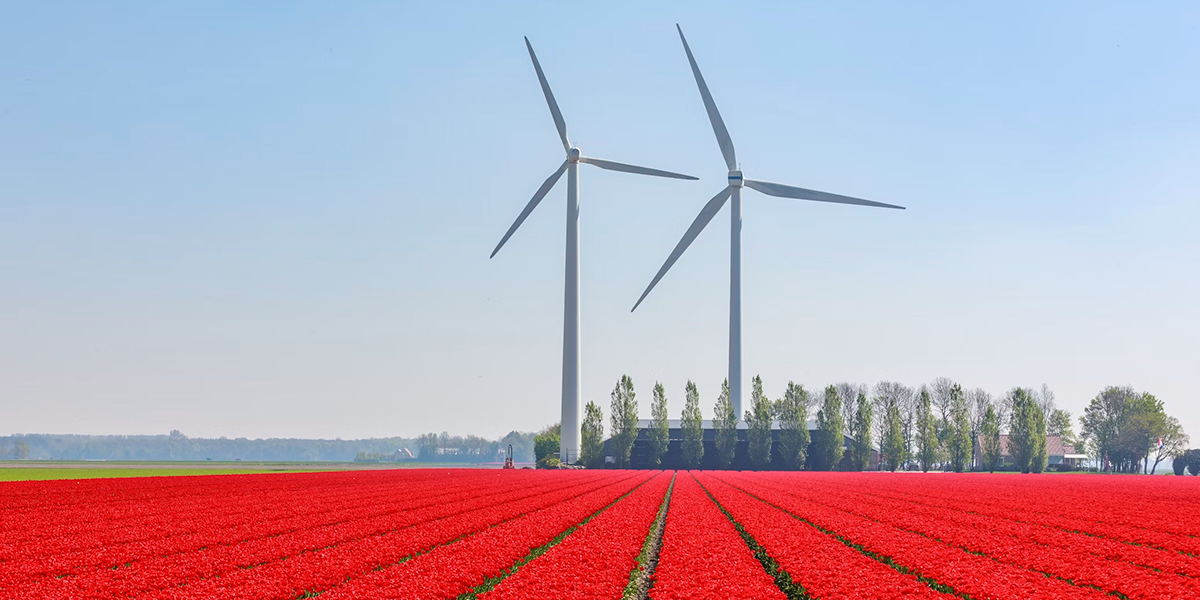The Netherlands is leading the way in sustainable construction and energy projects, creating numerous opportunities for technical professionals from across the EU. As the country ramps up its efforts to meet ambitious EU environmental targets, demand for skilled workers in various fields – including electricians, engineers, and plumbers – is on the rise. Here’s how sustainability targets are creating new jobs in the Netherlands for technical specialists.
A European leader in sustainability
The Dutch government has committed to green innovation across multiple sectors, including industrial, residential, and oil and gas projects. There’s rapid uptake of new technologies and construction methods to meet tightening EU regulations and ambitious national climate goals. If you’re an EU citizen and a technical professional, this shift means two things: exciting job prospects and the opportunity to learn valuable new skills.
Hydrogen and carbon capture in oil and gas
The Netherlands is investing heavily in hydrogen infrastructure, including high-profile projects like the North Sea Hydrogen Hub and the European Hydrogen Backbone (EHB).
At the same time, carbon capture and storage (CCS) is becoming an increasing part of industrial projects, with initiatives like the Porthos project in Rotterdam aimed at storing CO2 under the North Sea.
As a technical worker, you can expect new safety protocols, specialized training, and job opportunities in the emerging green energy sector. Getting involved now can put you ahead of the curve.
Circular construction in residential and industrial projects
The construction industry is changing. More and more buildings are designed for modular construction. 10% to 15% of residential buildings in the Netherlands are now prefabricated offsite. There’s a growing trend for ‘prefab’ building techniques. This modern, efficient approach, where ready-made parts are put together on-site, significantly reduces construction time.
In some ways, if you work in construction or project engineering, the prefab approach makes your job easier because you can focus on connecting (not building) the parts and ensuring a smooth installation. Projects are completed faster, plus the skills you learn around new materials and techniques will be highly valued everywhere – as the rest of the world slowly catches up.
Electrification and smart grid integration in industrial facilities
Heavy industries are moving away from fossil fuels toward electrification, making industrial heat pumps, battery storage, and AI-driven energy management systems the norm. Smart grids are also being developed to efficiently distribute power across industrial zones.
If you’re an electrician or any other type of engineer, at some point in time you’ll need to familiarize yourself with these evolving technologies. For that reason, energy transition projects in the Netherlands are a fantastic opportunity to develop expertise in future trends.
The role of technical workers in energy transition
The Netherlands is facing a skilled labor shortage in the technical sector, and sustainability projects will only increase the demand for qualified professionals. Fortunately, training programs in hydrogen technology, renewable energy, and sustainable construction are much more accessible, helping you future-proof your career.
As a technical professional, acquiring new skills on innovative, cutting-edge, energy transition projects can help boost your earning potential and enhance your resume.
Ready to explore your options?
The Netherlands’ drive for sustainability is creating exciting opportunities for skilled technical professionals like you. Whether you’re interested in developing skills in prefab construction, or smart grid integration, now is the time to join these groundbreaking projects.
Want to work on innovative energy transition projects in the Netherlands? To discover the right opportunity for you, search InAxtion jobs.


